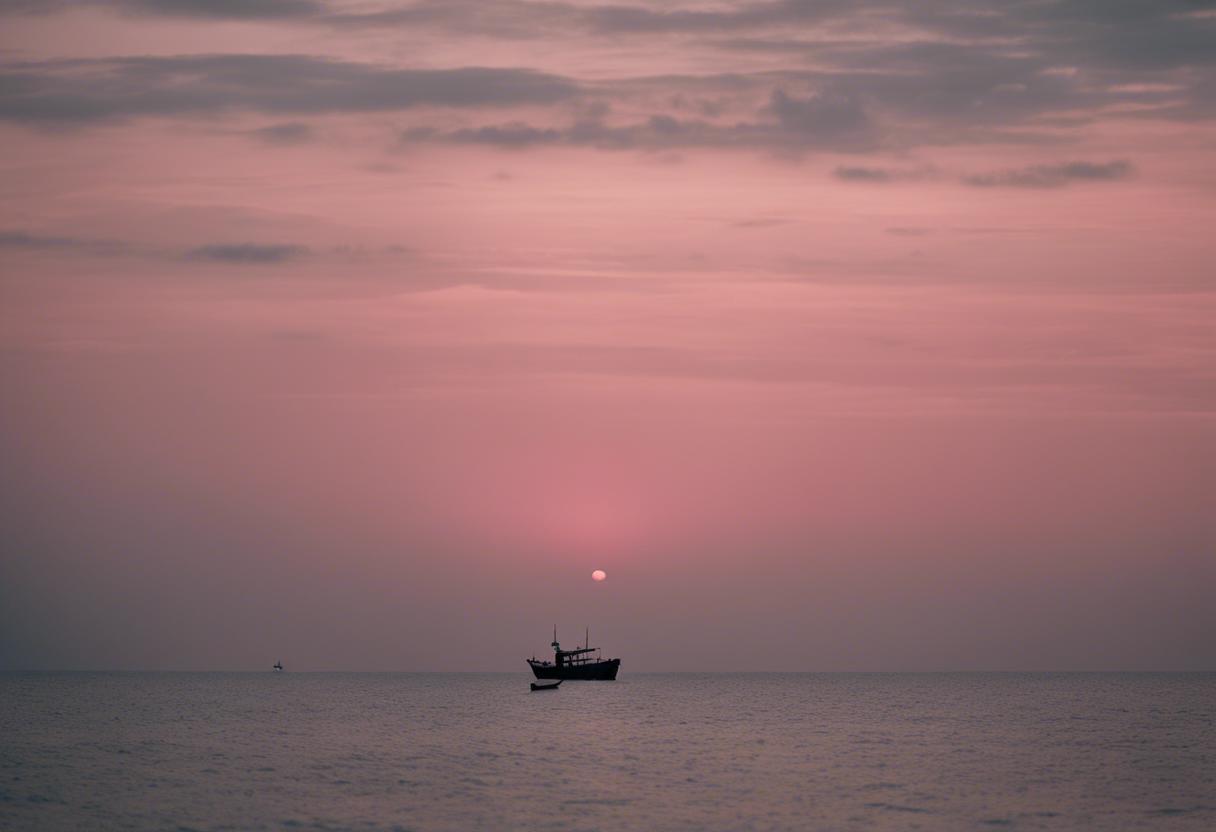The Philippines has announced that a new vessel will be dispatched promptly to replace a coast guard ship which returned to dock on Sunday from a contentious atoll in the South China Sea. The Manila government disclosed that the Teresa Magbuana, the Philippine’s largest coast guard vessel, suffered damage due to ramming and obstruction by the Chinese coast guard, resulting in its crew becoming malnourished and dehydrated.
In an effort to prevent China from usurping the reef, which it asserts historic entitlement over, the Philippines deployed the Teresa Magbuana to the Sabina Shoal last April. Beijing claims jurisdiction over nearly all of the South China Sea, designating these waters as its maritime territory, a claim that an international adjudication panel dismissed in 2016.
Beijing criticised the deployment of the Philippine’s vessel denouncing the move as “a serious infringement of China’s territorial sovereignty and a significant undermining of regional peace and stability.” The Teresa Magbuana was rammed by the Chinese coastguard vessels near the Sabina Shoal last month, which also involved a Filipino vessel colliding with a Chinese boat.
With the completion of its “sentinel duties amid overpowering odds”, Manila shared on Sunday that the Teresa Magbuana was heading back to shore, as reported by the Philippines’ National Maritime Council. A statement from Manila indicated the deploying of an additional vessel to the reef, in response to which the Chinese coast guard expressed its commitment to sustain “law enforcement” operations there.
Besides the stand-off over the Second Thomas Shoal, another contentious reef in the South China Sea, the Philippines and China, took part in talks in Beijing the previous week. The China-Philippines Bilateral Consultation Mechanism assembled Chen Xiaodong, China’s vice-minister for foreign affairs and Maria Theresa Lazaro, the Philippine undersecretary for foreign affairs, in a forum established in 2017.
“The Chinese foreign ministry expressed that a frank and comprehensive dialogue took place concerning sea-related disputes between China and the Philippines, with a special emphasis on the problem of Xianbin Jiao, referred to as the Sabina Shoal in the Philippines. The Chinese authorities sustained their stated position on the Xianbin Jiao issue, requesting the Philippines to draw back any appropriate vessels without delay,” was the description given by the Chinese foreign ministry.
Speaking about the discussions, Ms Lazaro explained that they were transparent dialogues focusing on their respective regions of the South China Sea, that the Philippines recognises as its sole economic region. “We mutually agreed to keep carrying on with talks on collaboration areas, predominantly on instant communication channels, cooperation among coastguards, as well as scientific and technological collaboration in marine,” she noted.
On the weekend, The Philippine National Maritime Council appreciated the Teresa Magbuana for undertaking its ‘sentinel duties against overwhelming odds’. Among the topics deliberated at the Xiangshan Forum in Beijing, which concluded on Saturday, was the tension in the South China Sea. This three-day forum for military diplomacy did not see the involvement of the Philippines though it drew about 1,800 attendees from over 100 countries and international organisations. It has gained significant importance as a security policy meeting in recent times.
The US has alerted that an upsurge in the dispute between China and the Philippines has the potential to spark Washington’s mutual defence pact with Manila. Nonetheless, China’s defence minister, Dong Jun, proposed that regional countries should address their disputes privately, stressing that their safety remains “in their control”.
Ng Eng Hen, Singapore’s defence minister, advocated for dialogue as a way to resolve disputes in the South China Sea. He also indicated that it’s important for Beijing and Washington to improve their relationship. He acknowledged China’s input to global governance debate, emphasising that inclusivity and universality are vital for maintaining tranquility and progress. “Numerous nations will find it effortless to back a vision advocating common laws that tie and advantage all countries, irrespective of their size,” he commented.

